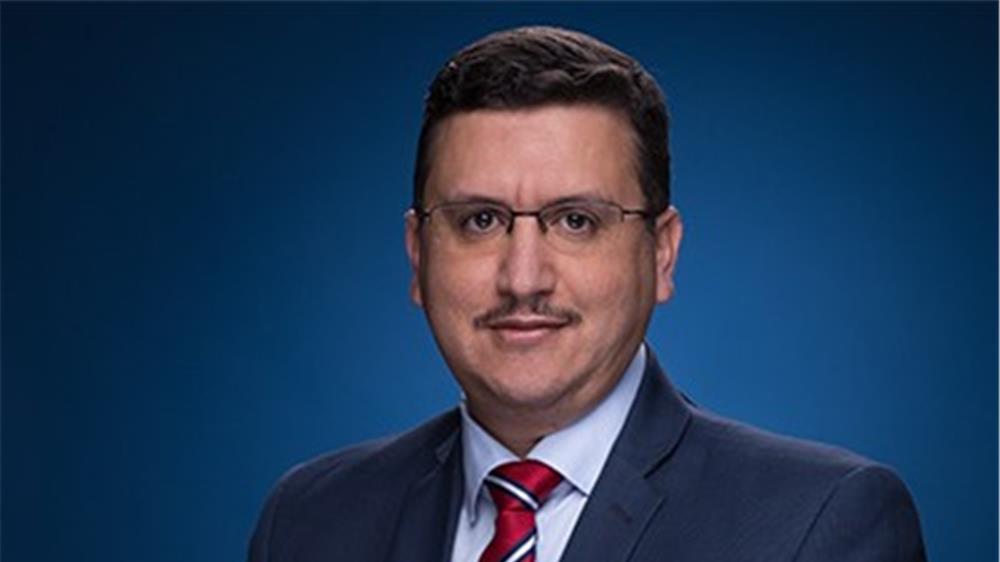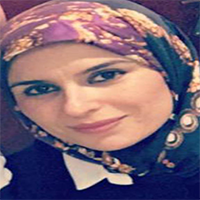في الـ24 من فبراير/شباط 2017، أتم مركز الجزيرة الإعلامي للتدريب والتطوير 13 عاما من الريادة في حقل التدريب الإعلامي العربي. وشهد المركز بعض التغييرات التي جاءت حصيلة خبرته الواسعة في مجال التعليم الإعلامي ومواكبةً لما يمرّ به المشهد الصحفي من تطورات.
بدورها، التقت مجلة الصحافة منير الدائمي، مدير معهد الجزيرة للإعلام (مركز الجزيرة الإعلامي للتدريب والتطوير سابقا)، بهدف إلقاء الضوء على واحد من أهم الصروح التعليمية الصحفية الذي بات قبلة لكثير من العاملين في الحقل الصحفي والشغوفين به، إضافة لخرّيجي الصحافة، حيث يرى الدائمي أن مجرّد تقدّمهم للتدريب في المعهد هو دليل على أن مخرجات التعليم الجامعي العربي لا تحقق للطلبة القدرة على التنافس في سوق العمل.. "يمر التعليم الأكاديمي بأزمة نظرا لقلة الإمكانيات وغياب الشغف والتركيز الشديد على الشهادة العلمية واجتياز الاختبارات دون المعرفة العملية، بينما ما نحتاجه هو تكامل بين التعليم الأكاديمي والتدريب العملي الذي تقدمه مراكز متخصصة مثل مركزنا".

ويركز المركز –بحسب الدائمي- على الجانب التطبيقي بنسبة 80% فيما يعطي ما نسبته 20% للجانب النظري، حيث "يقدم مدرِّبونا شيئا إضافيا وهو ممارستهم العملية من خلال عملهم اليومي في المؤسسات الإعلامية المختلفة، ما يوفر للمتدربين فرصة الاطلاع على بيئة عمل صحفي حقيقية".
تترواح الدورات التدريبية في المركز من أسبوع لثلاثة أسابيع أو لشهر يعترف الدائمي أنها غير كافية لتخريج صحفيين مؤهلين، لأن "التدريب وحده لا يكفي"، بيد أن المركز "يضع المتدربين على بداية الطريق ويمكِّنهم من المهارات الأساسية.. لذلك نحرص عند لقائنا بالمتدربين إلى مراجعة سقف توقعاتهم حتى تكون أكثر واقعية.. نخبرهم أنهم إن أرادوا الوصول إلى الاحترافية فعليهم تطبيق ما تعلموه بشكل متكرر".
المنهاج.. دليل تدريبي
يلاحظ المتابع لإصدارات المركز أنها تُحدّث دوما بالموازاة مع جديد التقنيات الصحفية. عن ذلك يقول الدائمي إن مناهج التدريب المعتمدة في المركز حاليا هي أقرب إلى الدليل التدريبي الذي يحتوي معالجة نظرية وتطبيقات لبرنامج الدورة، كما يساهم مدربو الدورات في وضع المناهج. ولأنهم صحفيون ذوو خلفية عملية وليست أكاديمية، فالمناهج تحوي خلاصات الخبرة وعصارات التجربة ونصائح وتوجيهات عملية.
مع هذا –والحديث للدائمي- فالمركز بصدد مراجعة شاملة لمناهجه مراجعة تعتمد على الكفاءات الخاصة بكل وظيفة وما تتطلبه من مهارات، ثم تصميم الدورات بناء عليها.. "اعتماد الكفاءات سيوحد مقاربتنا لمسألة المضمون، إذ ستغدو المناهج مبنية على تحليل عميق لكل كفاءة وما تتطلبه الوظيفة، وذلك بديلا عن الوضع الحالي الذي تطغى فيه التجربة الشخصية".
ولأن الحديث عن المناهج فقد جاءت إجابة الدائمي على سؤال طرحتُه حول المعايير التي يحتكم إليها المركز في تقييم احتياجات الصحفيين في العالم العربي بقوله إن هناك اختلافات في تلك الاحتياجات، بعضها متعلق بالإمكانيات المتاحة وبعضها الآخر متعلق بالسياسة ومقدار الحرية المتوفرة، ويتابع "ثمة فرق بين وعي المؤسسات والصحفيين أنفسهم بأهمية التدريب، ولذلك فإن احتياجات الصحفيين في العالم العربي تتحدد بحسب وضعية كل مؤسسة تقريبا.. وفي عموم العالم العربي –للأسف- نحن نتابع ما ينتجه غيرنا.. نتدرب على الاتجاهات الجديدة بعد أن تصبح قديمة في أماكن أخرى.. نقلد ولا نبتكر.. نستهلك ولا ننتج.. أكاد أجزم أن الجزيرة هي الوحيدة بين المؤسسات العربية التي تحاول أن تسبق وتنافس في سوق عالمي سريع التغير".
خبرة الجزيرة
مؤخرا أصبح إنتاج المحتوى الصحفي في المركز على رأس الأولويات، فمن إصدار الدوريات والكتب وترجمتها لتأسيس مجلة إلكترونية ومطبوعة (مجلة الصحافة)، بات المركز يشهد غزارة في الإنتاج يعلّق عليه الدائمي بقولة "في السنوات الأربع الأخيرة، بدأنا التفكير في تحويل خبرة الجزيرة المتراكمة إلى معرفة، وركزنا كثيرا على المحتوى.. استفدنا من نضج العديد من الزملاء ومحاولاتهم التدوين، كما استفدنا من اتجاه إدارات في الشبكة إلى فكرة النشر والبحث والدراسة مثل زملائنا في مركز الجزيرة للدراسات وزملائنا في قطاع ضبط الجودة.. أطلقنا مجلة الصحافة وأعدنا النظر في المناهج ونشرنا كتبا عن الصحافة الاستقصائية وترجمنا أخرى بالتعاون مع جهات إعلامية أخرى وبدأنا سلسلة تثقيفية في ما لا يسع الصحفي جهله".
ويوضح الدائمي بأن التدريب ينطلق من أمرين أساسيين:
- تقييم الأداء الخاص بالموظفين وما ينتج عنه من تحديد للإشكالات وجوانب النقص.
- إستراتيجية المؤسسة وتوجهاتها المستقبلية وما تحتاجه من تأهيل لكوادرها لتحقيق الإستراتيجية.
فيما يضيف المركز بعدا ثالثا وهو اتجاهات الإعلام عموما في المستقبل.. "فما له شعبية الآن قد لا يكون كذلك في المستقبل القريب.. ولذلك نبذل جهدا إضافيا في الاستشراف ويختلف جدولنا للدورات اختلافا جذريا كل سنة عن التي قبلها، فيشهد إضافة دورات وحذف أخرى". كما يدعو المركز المؤسسات والأفراد للتفكير العميق في احتياجاتهم قبل القفز إلى الدورات التدريبية.. "لأننا لسنا مجرد دكانة تبيع التدريب، بل مؤسسة لها رؤية وتسعى للإفادة".
التدريب يخضع لبرنامج جاد يُخضع المدرِّبين أنفسهم للتدريب قبل التحاقهم بالعمل، كما يشترط لمن يرغب بالحصول على شهادةٍ حضور ثلثي وقت الدورة على الأقل وإنهاء مشروع التخرج بنجاح، أما المشروع فـ"يختلف باختلاف الدورة.. قد يكون نشرة كاملة في دورات التقديم التلفزيوني الإخباري أو إدارة برنامج حواري أو إنتاج فيلم وثائقي أو إخراج برنامج تلفزيوني".
وبالعودة للمدرّبين، فقد كان المركز يعتمد عند انطلاقته عام 2004 على المدرب الأجنبي، وخصوصا من المدرستين البريطانية والفرنسية.. "ومع تطور العمل في المركز وتزايد الطلب من جمهور الجزيرة على الدورات التدريبية، وجد الزملاء المسؤولون وقتها ضروريا أن يتم تأهيل موظفي الجزيرة ليكونوا مدربين معتمدين، إذ أن المتدرب الذي يأتي للمركز عادة ما يرغب في أن يكون المدرب من الجزيرة، بحكم عامل اللغة ونظرا لتشابه ظروف العمل والتحديات المحيطة بالمؤسسات العربية.. النجومية رغم أهميتها التسويقية لم تكن شرطا في التدريب بل إن بعض أفضل مدربينا هم ممن يعمل في الكواليس".
بيد أن وجود المدربين من شبكة الجزيرة نفسها لم يمنع المركز من استمرار انفتاحه على تجارب الغير إذ –والكلام للدايمي- "لنا أيضا شراكات مع معاهد من دول مختلفة، بعضها أكاديمي مثل معهد الفيلم في شتوتجارت-ألمانيا ومعهد نيويورك للأفلام في أميركا (New York Film Academy)، وبعضهما مهني مثل: مؤسسة طومسون في بريطانيا وأكاديمية فرنسا الدولية (L’Academie) ومعهد إينا (INA) في فرنسا وشركة (AVID)، وغيرها.. التعاون مع هذه المؤسسات يتضمن إقامة الدورات المشتركة وتبادل المدربين والاستفادة من الإمكانيات المتوفرة لدى الطرفين".
بيئة تدريسية غير تقليدية
طرح المركز فكرة المختبر الإعلامي منذ فترة لتشجيع الشباب على الابتكار، وقد علّق الدائمي بأن لديهم في الشبكة إدارة كاملة معنية بالابتكار الإعلامي يسعى المركز دوما للاستفادة منها.. "نهتم بالتدريب المباشر في مواقع العمل والاستشارات التطويرية التي نقدمها للمؤسسات الإعلامية وما ننشره من مقالات ودراسات يشارك فيها إعلاميون من داخل الجزيرة وخارجها.. كما أننا نعمل على إطلاق منصة التدريب الإلكتروني خلال النصف الثاني من عام 2017، وقد جاء بناء على عاملين أساسيين: أصبح الجيل الجديد أكثر استعمالا لوسائل التكنولوجيا الحديثة، وباتت مواقع التدريب الإلكتروني وسيلة لجذب الشباب وإيصال المعلومة.. كما نرغب بتوفير التدريب لأكبر قدر ممكن من الشباب بأسعار منخفضة وبعيدا عن كل المتطلبات الإضافية التي يفرضها التدريب المباشر مثل تكاليف الانتقال والإقامة وقيود الحركة".
والجديد هذا العام (2017) هو أن المركز سيكون تحت مسمى جديد هو "معهد الجزيرة للإعلام" ابتداء من شهر فبراير/شباط من نفس العام. وعن هذا التحول يقول الدائمي إن "التغيير ليس فقط في الاسم، بل هو متعلق أساسا بالمحتوى والتوجه، وإذا لخصنا أهم ما سيميز معهد الجزيرة للإعلام عن مركز الجزيرة الإعلامي للتدريب والتطوير فإنه سيكون التالي:
-
تحويل الخبرة إلى معرفة: وذلك من خلال تدوين تجربة الجزيرة واستخلاص الدروس منها. وكذا إثارة النقاش حول أهم القضايا المطروحة في الساحة الإعلامية.
-
الشراكات مع المؤسسات الأكاديمية ومؤسسات البحث الإعلامي. وذلك عبر إطلاق برامج أكاديمية للإعلاميين واعتماد الشهادات والتعاون في مجال توفير المحتوى والخبراء، وهي شراكات تحقق الاستفادة المتبادلة.
-
المساهمة في الارتقاء بثقافة الإعلاميين من خلال نشر الكتب والدوريات وتنظيم الملتقيات والمؤتمرات.
-
مبادرات التطوير الإعلامي والتي ستعنى بتنظيم المسؤولية المجتمعية للمعهد، والبحث عن شراكات مع مؤسسات دولية رسمية وغير حكومية للقيام بأنشطة مشتركة.
-
تقديم خدمات إنتاجية لأي جهات خارجية تطلبها من خلال وحدة إنتاج خاص.
-
التدريب الإلكتروني وهو أمر سيسمح بالوصول إلى جمهور جديد في أماكن بعيدة.
-
إعادة النظر في الدورات التدريبية وطرق تقديمها والمدربين بما يتناسب والوضع الجديد".
إشكالية الأسعار
يرفض الدائمي وصف الأسعار التي يطرحها المركز بالـ"مرتفعة"، وخصوصا عند مقارنتها بأسعار المؤسسات المشابهة، ويؤكد على أن المركز ليس جهة ربحية بالأساس، بل هناك مراجعات مستمرة لأسعار الدورات لتناسب جميع الأطراف، وفي الوقت نفسه يوفر المركز خصومات خاصة لفئات عديدة (الطلبة، المؤسسات ذات النفع العام، النشء، المؤسسات الإعلامية الناشئة.. إلخ). كما يطلق من حين لآخر مبادرات خدمة مجتمعية، مثل سفراء الجزيرة التي تقوم على التدريب التطوعي أو الدورات المشتركة مع منظمات غير حكومية.












































